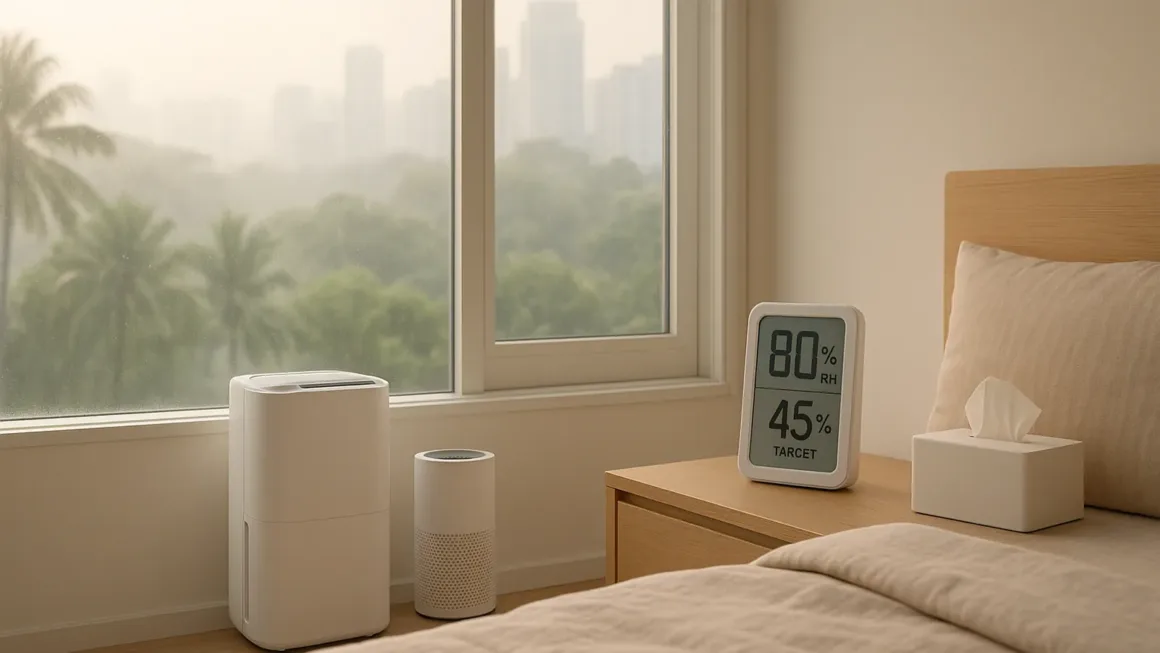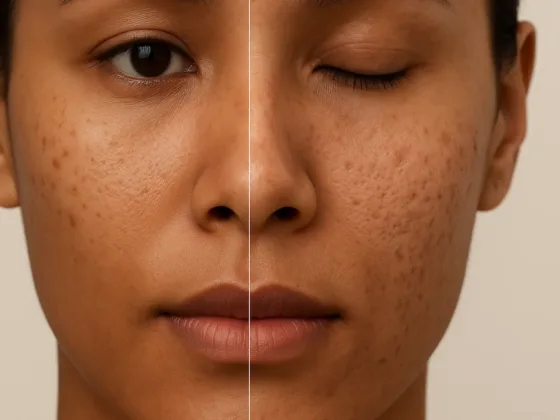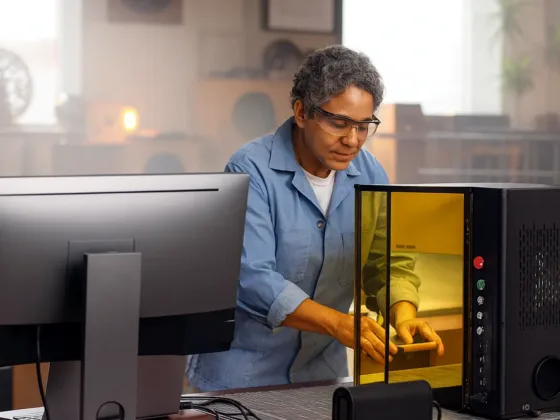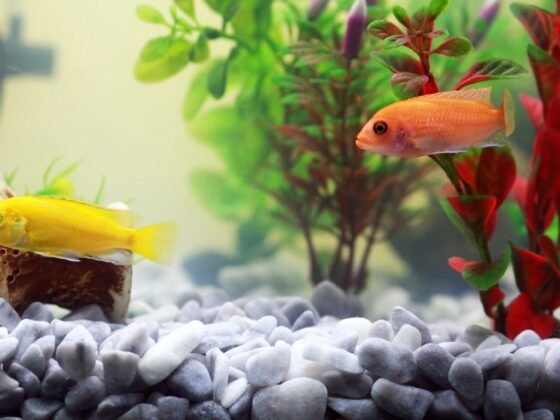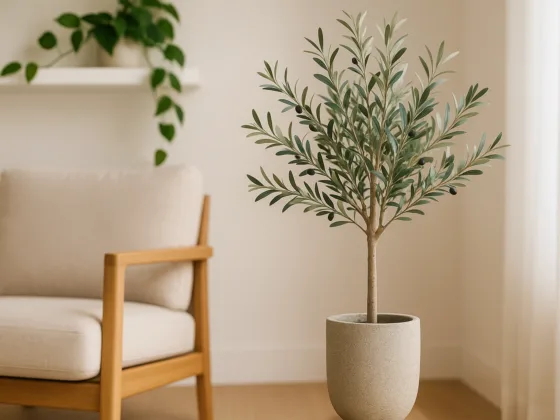Table of Contents Show
Singapore’s year-round heat and humidity are well known for causing sticky discomfort and frizzy hair days — but for many people, this climate can do more than that. The persistent moisture in the air can actually worsen sinus issues, making conditions like sinusitis harder to manage or fully recover from. Those struggling with recurring nasal congestion or facial pressure can benefit from learning more about how the weather affects their condition and when to seek help for sinus infections Singapore.
Understanding Sinus Infections
Sinus infections, medically known as sinusitis or rhinosinusitis, occur when the tissue lining the sinuses becomes inflamed or swollen. Normally, these air-filled cavities help humidify the air you breathe and produce mucus that drains into your nasal passages. But when drainage is blocked — whether from allergies, colds, or structural issues — bacteria or viruses can grow, leading to infection.
Common symptoms include:
- Nasal congestion or blockage
- Thick yellow or green nasal discharge
- Facial pain or pressure (especially around the eyes, forehead, and cheeks)
- Headaches that worsen when bending forward
- Post-nasal drip and sore throat
- Reduced sense of smell
While sinus infections can be acute (lasting less than four weeks), many Singaporeans experience recurrent or chronic sinusitis due to the local climate and environmental triggers.
Why Humidity Matters
Humidity — the amount of moisture in the air — has a major influence on respiratory health. In tropical countries like Singapore, relative humidity often exceeds 80% for most of the year. That excess moisture can create ideal conditions for mold growth, dust mites, and bacteria, all of which can irritate the nasal passages and worsen sinus inflammation.
- Mucus Thickening and Drainage Problems
The sinuses rely on a delicate mucus system that traps and clears particles. However, in very humid environments, the air’s moisture can make mucus thicker and stickier. Instead of draining smoothly, it can clog the sinus openings, allowing bacteria and allergens to accumulate. - Swelling of Nasal Tissues
When the air feels heavy, nasal membranes can become swollen. This inflammation reduces airflow, causes congestion, and makes the sinuses more susceptible to infection. Over time, people who are sensitive to humidity may find that their sinuses feel constantly “blocked,” even when they don’t have a cold. - Mold and Dust Mite Growth
Singapore’s warm, damp conditions are perfect for mold spores and dust mites — two major indoor allergens. These tiny irritants trigger inflammation in the nasal passages, increasing the risk of sinus flare-ups and allergic rhinitis. - Prolonged Recovery Times
Even after treatment, humid air can delay healing. Moisture keeps the nasal passages swollen, preventing complete drainage. That’s why some people experience frequent recurrences, particularly during monsoon seasons or in poorly ventilated environments.
The Link Between Sinus Health and Air Quality
Humidity isn’t the only factor. Air pollution, haze, and airborne allergens in urban areas can worsen sinus problems. During haze periods, tiny particles and smoke irritate the nasal linings, making them more prone to infection.
Prolonged exposure to poor air quality can damage cilia — the small hair-like structures that help move mucus through the sinuses. Without proper cilia function, the sinuses can’t clear debris effectively, leading to inflammation and infection.
Those who work in air-conditioned offices may face another challenge: rapid temperature and humidity changes. Constantly moving between cold, dry indoor air and warm, moist outdoor air can cause nasal passages to expand and contract, worsening congestion and pressure.
How to Reduce Sinus Problems in a Humid Climate
While you can’t change Singapore’s weather, you can make small lifestyle adjustments to minimize sinus irritation.
1. Maintain Indoor Air Quality
- Use a dehumidifier: Keep indoor humidity between 40–50% to prevent mold and dust mite growth.
- Clean air-conditioning units: Mold can build up inside filters and vents, releasing spores into the air.
- Ventilate bathrooms and kitchens: Steam can raise humidity levels dramatically.
2. Stay Hydrated
Drinking enough water helps thin mucus, making it easier for the sinuses to drain. Avoid excessive caffeine and alcohol, which can contribute to dehydration.
3. Try Nasal Irrigation
Rinsing your nasal passages with saline solution clears mucus, allergens, and bacteria. A neti pot or saline spray can be used daily, especially after being outdoors.
4. Avoid Sudden Temperature Changes
If you’re sensitive to temperature shifts, give your body a few minutes to adjust when entering or exiting air-conditioned spaces. Breathing through your nose (instead of your mouth) helps regulate air temperature and moisture before it reaches your lungs.
5. Manage Allergies
If your sinus infections often follow sneezing or itching, allergies may be the underlying cause. Allergy testing can help identify triggers such as dust mites, mold, or pet dander. Using hypoallergenic bedding and regularly washing pillowcases in hot water can reduce exposure.
6. Avoid Environmental Irritants
Smoke, strong perfumes, and cleaning chemicals can irritate nasal membranes. Use fragrance-free cleaning products and ensure adequate ventilation when using household sprays.
When to Seek Medical Treatment
If sinus symptoms persist beyond 10 days, worsen after initial improvement, or occur more than four times a year, it’s time to consult an ENT (ear, nose, and throat) specialist. Chronic sinus infections can lead to complications if left untreated — including worsening headaches, ear pressure, or even eye-related symptoms.
A specialist may recommend diagnostic tools such as nasal endoscopy or a CT scan to identify the exact cause. In some cases, medications like antibiotics, nasal corticosteroids, or antihistamines may be prescribed. For structural issues such as nasal polyps or a deviated septum, surgical options like functional endoscopic sinus surgery (FESS) can help restore proper drainage.
If you’ve been battling frequent sinus flare-ups, getting a professional opinion from a clinic that manages sinus infections in Singapore can help determine whether allergies, anatomy, or humidity are playing the biggest role in your symptoms.
Lifestyle Habits That Support Sinus Health
Healthy daily habits can go a long way in preventing future infections:
- Get enough sleep: Your immune system relies on rest to fight inflammation.
- Exercise regularly: Light physical activity helps improve circulation and sinus drainage.
- Avoid prolonged exposure to air pollutants: Use masks during haze seasons or when around construction dust.
- Eat a balanced diet: Foods rich in antioxidants and omega-3s reduce inflammation.
It’s also helpful to pay attention to how your body reacts during different weather conditions. Some people find that rainy or particularly muggy days trigger symptoms more strongly, while others are more affected by air conditioning or dry indoor air. Tracking these patterns can help you anticipate and manage flare-ups better.
What Doctors Say About Humidity and Sinuses
ENT specialists in Singapore often observe that patients experience recurring sinus infections not because their treatments fail, but because environmental conditions continuously reintroduce triggers. They emphasize that controlling the environment — particularly indoor humidity — is just as crucial as taking medication.
Long-term sinus health, they note, depends on a combination of medical care, good hygiene, and environmental awareness. Many patients who make small but consistent adjustments to their homes and routines experience fewer flare-ups and improved breathing comfort within weeks.
Final Thoughts
Singapore’s humid climate makes sinus management a year-round challenge, but understanding how moisture affects your sinuses can help you take preventive action. Controlling indoor humidity, staying hydrated, and addressing underlying allergies all contribute to healthier nasal passages.
If you’ve been struggling with persistent congestion or pressure despite home remedies, it might be time for a professional evaluation. Clinics specializing in sinus infections in Singapore can provide diagnostic clarity and personalized treatment options that help you breathe easier — even in the tropics.
